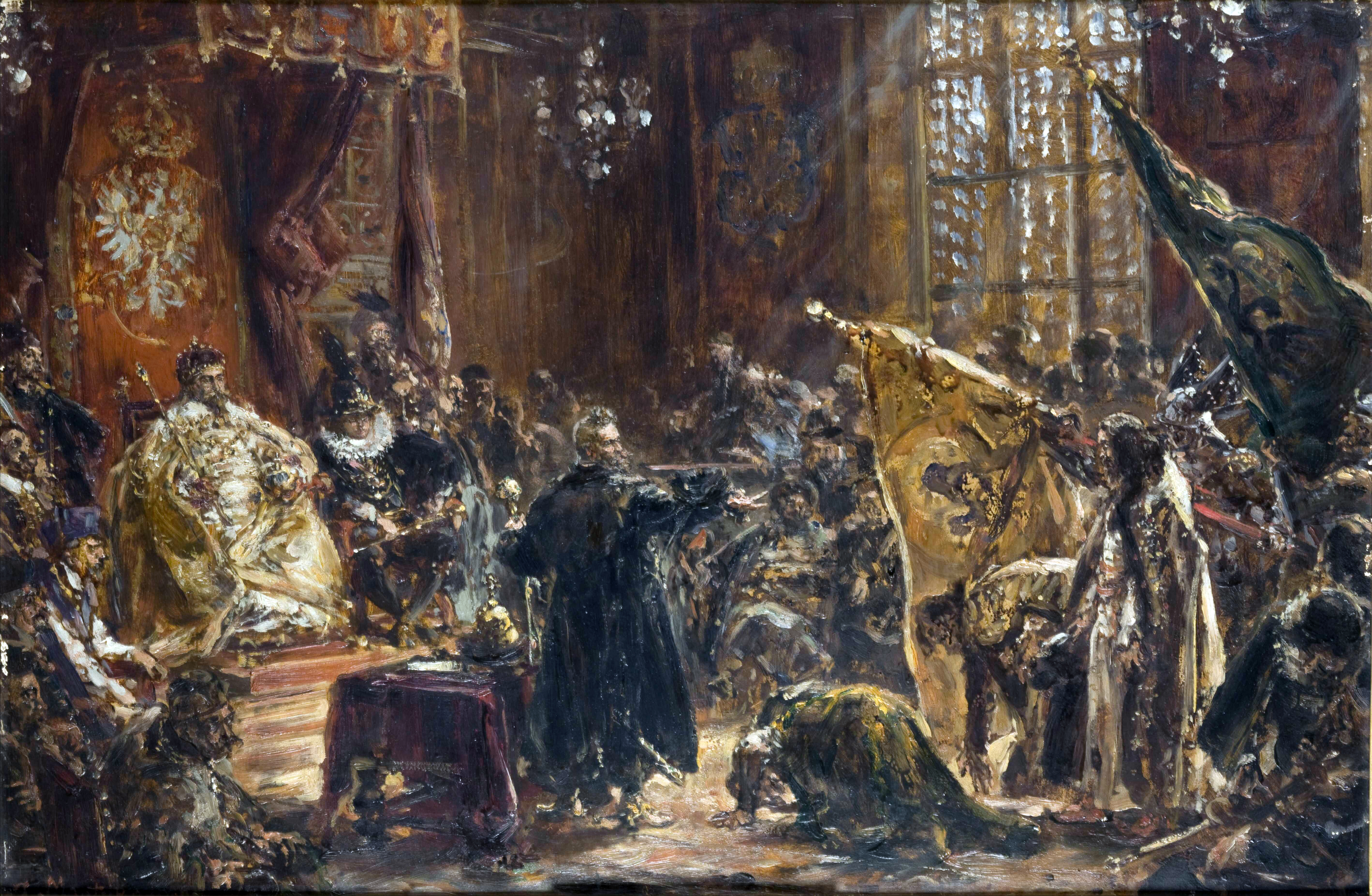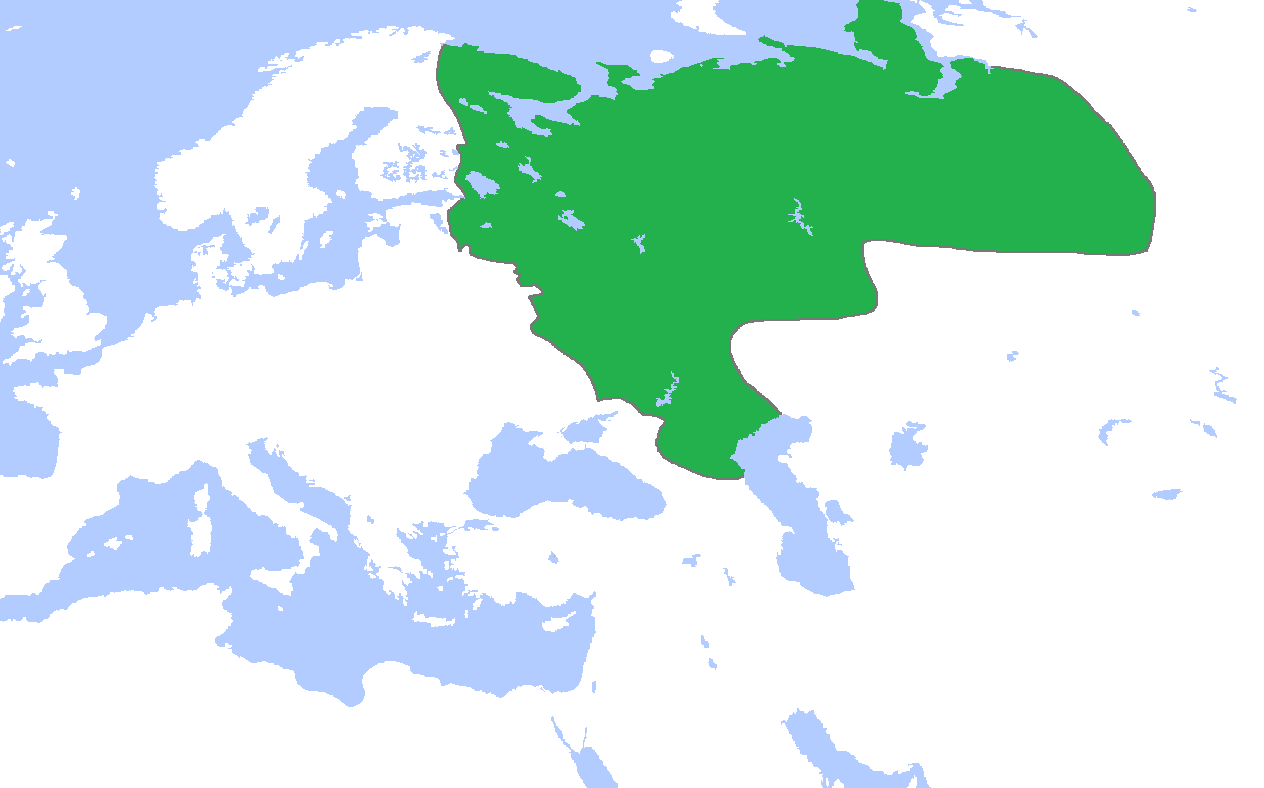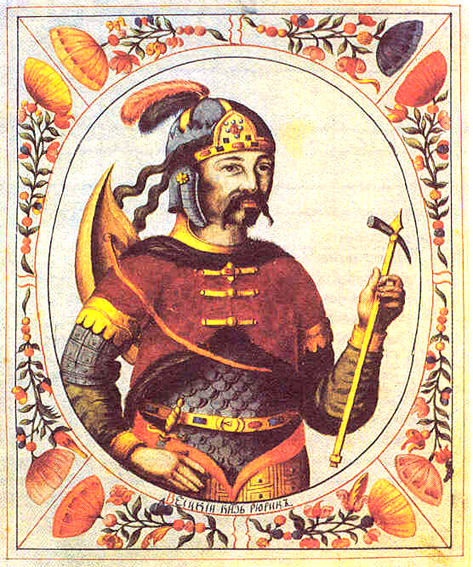|
Basil IV
Vasili IV Shuisky (russian: Василий IV Иванович Шуйский, ''Vasiliy IV Ivanovich Shuyskiy'', c. 155212 September 1612) was Tsar of Russia between 1606 and 1610 after the murder of False Dmitri I. His rule coincided with the Time of Troubles. He was the only member of Shuysky, House of Shuisky to become Tsar and the last member of the Rurikid dynasty to rule as tsar. Life He was a son of Ivan Andreyevich Shuisky. Born Knyaz , Prince Vasili Ivanovich Shuisky, he descended from sovereign princes of Nizhny Novgorod and was a 20th-generation male-line descendant of the 9th-century Varangian prince Rurik. Vasili Ivanovich was one of the leading boyars of the Tsardom of Russia during the reigns of Feodor I of Russia , Feodor I () and Boris Godunov (). In the court intrigues of the Time of Troubles (1598–1613), Vasily and his younger brother Dmitry Shuisky usually acted together and fought as one. It was Shuisky who, in obedience to the secret orders of ... [...More Info...] [...Related Items...] OR: [Wikipedia] [Google] [Baidu] |
Tsar Of Russia
This is a list of all reigning monarchs in the history of Russia. It includes the princes of medieval Rus′ state (both centralised, known as Kievan Rus', Kievan Rus′ and feudal, when the political center moved northeast to Grand Duke of Vladimir, Vladimir and finally to Moscow), tsars, and Emperor of all the Russias, emperors of Russia. The list begins with the semi-legendary prince Rurik of Novgorod, sometime in the mid 9th century ( 862) and ends with Nicholas II of Russia, emperor Nicholas II who abdicated in 1917, and was Execution of the Romanov family, executed with his family in 1918. The vast territory known today as Russia covers an area that has been ruled by various polities, including Kievan Rus', the Grand Duchy of Moscow, the Tsardom of Russia and the Russian Empire, and the sovereigns of these many nations and throughout their histories have used likewise as wide a range of titles in their positions as chief magistrates of a country. Some of the earliest ... [...More Info...] [...Related Items...] OR: [Wikipedia] [Google] [Baidu] |
Rurikid Dynasty
The Rurik dynasty ( be, Ру́рыкавічы, Rúrykavichy; russian: Рю́риковичи, Ryúrikovichi, ; uk, Рю́риковичі, Riúrykovychi, ; literally "sons/scions of Rurik"), also known as the Rurikid dynasty or Rurikids, was a noble lineage founded by the Varangian prince Rurik, who established himself in Novgorod around the year AD 862. The Rurikids were the ruling dynasty of Kievan Rus' (after the conquest of Kiev by Oleg of Novgorod in 882) before it Kievan Rus'#Final disintegration, finally disintegrated in the mid-13th century, as well as the successor Rus' principalities and Rus' prince republics of Novgorod Republic, Novgorod, Pskov Republic, Pskov, Vladimir-Suzdal, Ryazan Principality, Ryazan, Principality of Smolensk, Smolensk, Galicia-Volhynia (after 1199), Principality of Chernigov, Chernigov, and the Grand Duchy of Moscow (from 1263). Following the disintegration of Kievan Rus', the most powerful state to eventually arise was the Grand Duchy of Mo ... [...More Info...] [...Related Items...] OR: [Wikipedia] [Google] [Baidu] |
Tsarevich Dmitry Ivanovich Of Russia (born 1582)
Dmitri Ivanovich ( rus, Дмитрий Иванович, Dmitrii Ivanovich; 19 October 1582 – 15 May 1591), also known as Dmitry of Uglich (, ''Uglichskii'') or Dmitry of Moscow (, ''Moskovskii''), was the youngest son of Ivan the Terrible, Tsar of Russia. He was Russian Tsarevich and was famously impersonated by a series of pretenders after his death. Life Dmitry was the youngest son of Ivan the Terrible with his last wife Maria Nagaya (their only child). Ivan died in 1584, and was succeeded by Dmitry's older brother, Feodor I. Feodor was sickly and weak, and the country was governed by a regency council. This was headed from 1586 by the boyar Boris Godunov, Feodor's brother-in-law. In 1584, Godunov sent Dmitry, and his mother and her brothers, into internal exile in the Tsarevich's appanage city of Uglich. On 15 May 1591, Dmitry died there under mysterious circumstances. Thus when Tsar Feodor died childless in 1598, Dmitry, the only other possible Rurikid heir, was also ... [...More Info...] [...Related Items...] OR: [Wikipedia] [Google] [Baidu] |
Tsarevich
Tsarevich (russian: Царевич, ) is a Slavic title given to tsars' sons. Under the 1797 Pauline house law, the title was discontinued and replaced with ''Tsesarevich'' for the heir apparent alone. His younger brothers were called '' Velikiy Knjaz'', meaning ''Grand Prince'', although it was commonly translated to English as ''Grand Duke''. English sources often confused the terms ''Tsarevich'' and ''Tsesarevich''. Alexei Nikolaevich, the only son of Nicholas II, was the last member of Russian royalty to be called ''Tsarevich'' even though he was the Tsesarevich. Historically, the term was also applied to descendants of the khans (tsars) of Kazan, Kasimov, and Siberia after these khanates had been conquered by Russia. See: '' Tsareviches of Siberia'', for example. The descendants of the deposed royal families of Georgia or the Batonishvili were given the titles of Tsarevich until 1833 when they were demoted to Knyaz after a failed coup to restore the Georgian monarchies. ... [...More Info...] [...Related Items...] OR: [Wikipedia] [Google] [Baidu] |
Uglich
Uglich ( rus, У́глич, p=ˈuɡlʲɪtɕ) is a historic town in Yaroslavl Oblast, Russia, located on the Volga River. Population: History The city was first documented in 1148 as ''Ugliche Pole'' (''Corner Field''). The town's name is thought to allude to the nearby turn in the Volga River, and is derived from the Russian word ''ugol'' (a corner, a nook). From 1218 until 1328, Uglich was the seat of a small princedom. At that time, the local princes sold their rights to the great prince of Moscow. Uglich was a border town of the Grand Duchy of Moscow, and it was burned several times in conflicts by Lithuanians, Tatars, and the grand prince of Tver. Grand Duke Ivan III of Moscow gave the town in 1462 to his younger brother Andrey Bolshoy (Andrey the Great). During Andrey's reign, the town was expanded and the first stone buildings were constructed. Particularly notable were the cathedral (rebuilt in 1713), the Intercession Monastery (destroyed by the Bolsheviks in the e ... [...More Info...] [...Related Items...] OR: [Wikipedia] [Google] [Baidu] |
Dmitry Shuisky
Prince Dmitry Ivanovich Shuisky was a Russian boyar from the Shuisky family, a younger brother to Vasily IV of Russia. As a playmate of young Tsarevich Feodor Ivanovich, Dmitry was said to accompany him day and night in his devout wanderings from monastery to monastery. In 1584, his slandering of Prince Ivan Belsky led to riots in Moscow. Two years later, he was attested as a governor of Kargopol. On Fyodor's accession to the throne, he quarrelled with another boyar, Boris Godunov, and was expelled to his family patrimony in Shuya. Later he made peace with Godunov and married his sister-in-law. Shuisky is best remembered as a singularly incapable general. He was routed by False Dmitry I in 1606 and shared disgrace and imprisonment with his brother Vasily. When the latter was elected Tsar, he put Dmitry in charge of the army which would lose its every battle against the Polish invaders and their allies. At last he was relieved of his duties and replaced with a young cousin, Mikhai ... [...More Info...] [...Related Items...] OR: [Wikipedia] [Google] [Baidu] |
Boris Godunov
Borís Fyodorovich Godunóv (; russian: Борис Фёдорович Годунов; 1552 ) ruled the Tsardom of Russia as ''de facto'' regent from c. 1585 to 1598 and then as the first non-Rurikid tsar from 1598 to 1605. After the end of his reign, Russia descended into the Time of Troubles. Early years Boris Godunov was the most noted member of an ancient, now extinct, Russian family of Tatar origin ( Chet), which came from the Horde to Kostroma in the early 14th century. This cites: * Platon Vasilievich Pavlov, ''On the Historical Significance of the Reign of Boris Godunov'' (Rus.) (Moscow, 1850) * Sergyei Mikhailivich Solovev, ''History of Russia'' (Rus.) (2nd ed., vols. vii–viii., St Petersburg, 1897). This legend is written in the annals dating from early 17th century. He was descended from the Tatar Prince Chet, who went from the Golden Horde to Russia and founded the Ipatiev Monastery in Kostroma. Boris was probably born before or after the Kazan campaign. Boris was ... [...More Info...] [...Related Items...] OR: [Wikipedia] [Google] [Baidu] |
Feodor I Of Russia
Fyodor I Ivanovich (russian: Фёдор I Иванович) or Feodor I Ioannovich (russian: Феодор I Иоаннович; 31 May 1557 – 17 January (NS) 1598), also known as Feodor the Bellringer (russian: Феодор Звонарь), reigned as Tsar of Russia from 1584 until his death in 1598. Feodor's mother died when he was three, and he grew up in the shadow of his father, Ivan the Terrible. A pious man of retiring disposition, Feodor took little interest in politics, and the country was effectively administered in his name by Boris Godunov, the brother of his beloved wife Irina. His childless death marked the end of the Rurik dynasty, and spurred Russia's descent into the catastrophic Time of Troubles. In Russian documents, Feodor is sometimes called ''blessed'' (russian: Блаженный). He is also listed in the "Great Synaxaristes" of the Orthodox Church, with his feast day on January 7 (OS). Background Feodor was born in Moscow, the son of Ivan the Terri ... [...More Info...] [...Related Items...] OR: [Wikipedia] [Google] [Baidu] |
Boyar
A boyar or bolyar was a member of the highest rank of the Feudalism, feudal nobility in many Eastern European states, including Kievan Rus', Bulgarian Empire, Bulgaria, Russian nobility, Russia, Boyars of Moldavia and Wallachia, Wallachia and Moldavia, and later Romania, Lithuanian nobility, Lithuania and among Baltic German nobility, Baltic Germans. Boyars were second only to the ruling knyaz, princes (in Bulgaria, tsars) from the 10th century to the 17th century. The rank has lived on as a surname in Russia, Finland, Lithuania and Latvia where it is spelled ''Pajari'' or ''Bajārs/-e''. Etymology Also known as bolyar; variants in other languages include bg, боляр or ; rus, боя́рин, r=boyarin, p=bɐˈjærʲɪn; ; ro, boier, ; and el, βογιάρος. The title Boila is predecessor or old form of the title Bolyar (the Bulgarian language, Bulgarian word for Boyar). Boila was a title worn by some of the Bulgars, Bulgar aristocrats (mostly of regional governors a ... [...More Info...] [...Related Items...] OR: [Wikipedia] [Google] [Baidu] |
Rurik
Rurik (also Ryurik; orv, Рюрикъ, Rjurikŭ, from Old Norse '' Hrøríkʀ''; russian: Рюрик; died 879); be, Рурык, Ruryk was a semi-legendary Varangian chieftain of the Rus' who in the year 862 was invited to reign in Novgorod. According to the '' Primary Chronicle'', Rurik was succeeded by his kinsman Oleg who was regent for his infant son Igor. He is considered to be the founder of the Rurik dynasty, which went on to rule Kievan Rus' and its principalities, and then the Tsardom of Russia, until the death of Feodor I in 1598. Vasili IV, who reigned until 1610, was the last Rurikid monarch of Russia. Life The only surviving information about Rurik is contained in the 12th-century '' Primary Chronicle'' written by one Nestor, which states that Chuds, Eastern Slavs, Merias, Veses, and Krivichs "drove the Varangians back beyond the sea, refused to pay them tribute, and set out to govern themselves". Afterwards the tribes started fighting each other and d ... [...More Info...] [...Related Items...] OR: [Wikipedia] [Google] [Baidu] |
Varangian
The Varangians (; non, Væringjar; gkm, Βάραγγοι, ''Várangoi'';Varangian " Online Etymology Dictionary : варяже, varyazhe or варязи, varyazi) were , conquerors, traders and settlers, mostly from . Between the 9th and 11th centuries, Varangians ruled the state of |
Nizhny Novgorod
Nizhny Novgorod ( ; rus, links=no, Нижний Новгород, a=Ru-Nizhny Novgorod.ogg, p=ˈnʲiʐnʲɪj ˈnovɡərət ), colloquially shortened to Nizhny, from the 13th to the 17th century Novgorod of the Lower Land, formerly known as Gorky (, ; 1932–1990), is the administrative centre of Nizhny Novgorod Oblast and the Volga Federal District. The city is located at the confluence of the Oka and the Volga rivers in Central Russia, with a population of over 1.2 million residents, up to roughly 1.7 million residents in the urban agglomeration. Nizhny Novgorod is the sixth-largest city in Russia, the second-most populous city on the Volga, as well as the Volga Federal District. It is an important economic, transportation, scientific, educational and cultural center in Russia and the vast Volga-Vyatka economic region, and is the main center of river tourism in Russia. In the historic part of the city there are many universities, theaters, museums and churches. The city w ... [...More Info...] [...Related Items...] OR: [Wikipedia] [Google] [Baidu] |


.jpeg)


_-_contrast.jpg)


